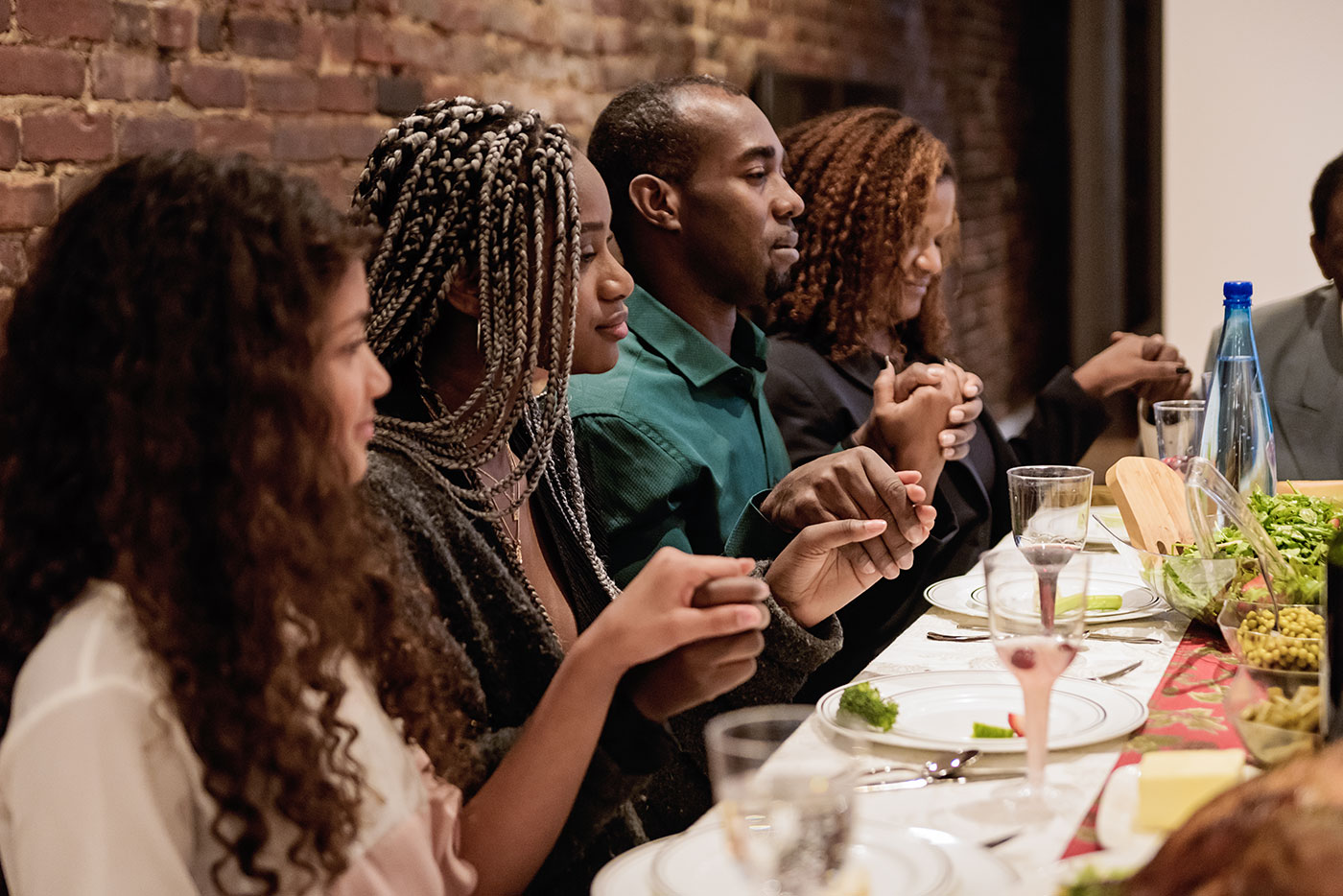Faith communities set the table for neighbors to reach out across difference

New Pluralists partner Branden Polk speaks to how faith animates many local leaders in America who are mending the ties that bind their communities.
By Branden Polk, Director of Strategic Partnerships at Stand Together
A Pentecostal preacher. A licensed social worker. A business owner. I’m a Black, Christian, gay man who works in an organization perceived as right-leaning. Confused yet? All these things together have caused a great deal of strife personally. I’ve been rejected and sometimes victimized for being any one of these.
To many, I am filled with contradictions, which can be offensive. At this point I’m pretty used to even those closest to me assuming all sorts of things about my beliefs, my worldview. Some of which may be right, and some may be wrong, but the truth is that I’m more nuanced and nearly impossible to label or put in a box. I am doing my best to embrace the fullness of my own complexity with courage and vulnerability, but that does not come without ruffling feathers or causing someone, if not lots of people, discomfort along the way.
It’s sometimes difficult for people to understand or to even accept each other when not wholly defined by a single aspect of their identity. While this might be easier, it’s certainly not a transparent or authentic way to exist in the world. All of my experiences, from being a community-based practitioner to working in philanthropy, have taught me that people are complex, with unique stories of suffering, pain, loss, joy, and love. I’ve learned that despite an array of mistakes and traumas that are part of the human experience, all of us are worthy of connection and belonging no matter the labels, no matter our affiliations.
Maybe it’s crazy, but I still have hope that when we do the hard work of introspection we can grow to see value and the potential in ourselves and in each other. It’s then that we become more capable of doing the hard work of respecting, understanding, and collaborating across even the deepest differences.
Pluralism isn’t for the few.
Our country is at a moment where people are being reduced to labels. In some instances, labels can be fairly benign. For example, we often use shorthand to communicate our lived experiences and sometimes the values that we aspirationally desire to live by. Like when I say that I’m an actor, singer, or gymnast (one of these is definitely not true) one might make some generalized assumptions about my preferences and values.
The problem is when we leverage labels against one another in a manner that feeds division and mistrust between us. For example, these days being a conservative Christian is equated by some to being racist and bigoted. Conversely, people who might identify as liberal or atheist are sometimes seen as anti-American and intolerant.
Assuming that we can fully understand or appreciate another person simply based on the archetypes they use to describe themselves is a truly diabolical condition. The point of the label should not be to reduce an individual to a few words, but rather to encourage more curiosity and deeper discovery.
Most Americans want to understand and feel understood by their neighbors. But, unfortunately, they think they’re alone, because the loudest voices on the extremes are reinforcing an “us vs. them” mentality, weaponizing labels and claiming we have more that divides than unites us.
An overwhelming majority of Americans are hungry for something different. Most do not ascribe to the opinions of the extremes on the wings, but rather hold more nuanced beliefs across political party, race, gender, and ideology, according to my friends at the research nonprofit More In Common. This more than suggests a desire to move beyond labels and toward a society that transcends division, marked by an eagerness to demonstrate how our shared principles compel us to be neighbors, to love one another sacrificially, and to solve problems together.
Whether you are Democrat or Republican, Boomer or Gen Z, or the Game of Thrones North or South, our shared American identity can and should be inclusive of any individual, regardless of the labels used, while also reaffirming the aspirational principles of pluralism that are foundational to the American project.
This thing that we call pluralism is not for the few. It’s not only for the elite. This is about building a culture of belonging where each person has equal opportunity to reach their potential.
Religious principles seed solutions to toxic division.
For me, the principles of pluralism are closely intertwined with religious doctrine. In fact, many of the fundamentals of peaceful pluralism can be summarized in the Golden Rule – ‘do unto others as you would have them do unto you.’ Jesus himself said that we should ‘love our neighbor as we love ourselves.’ He said that doing this was just as important and equal to the prime commandment to love God with all heart, mind, soul, and strength.
For centuries, religious congregations have been at the center of many communities in America. Faith-based organizations have a history of leaning into care for their communities, whether it’s organizing after-school programs, caring for those experiencing homelessness, providing counsel and respite to youth in foster care, or calling for peace and bridge building. Church leaders are often the first to step up during times of unrest and violence, with entreating messages of understanding and compassion rather than hate and fear. We all know about the Civil Rights movement and the Beloved community that was born from local churches across the American South with a call to protest peacefully with dignity, respect, and forgiveness for your enemy.
This is where solid public theology can be interwoven with clarity on faith-based mission. In other words, it’s important to be honest about the sacrifices required to care for others, especially those with whom you disagree. The values, principles, and tenets of most faiths do in fact commission believers to build a culture of belonging for everyone. It’s my belief that these groups are models for what practicing peaceful pluralism really looks like, but we need them to come into the light, despite the fear of being canceled or criticized. We need you to come into the light.
This work is for everyone, and everyone is this work.
With our Healing Starts Here: Local Solutions to America’s Divisions RFP, we want to invite community leaders, activists, movement builders, and neighbors to step into the light and be the prophetic voices of hope for this work.
We already have the privilege of working with some of these individuals and organizations like Rev. Jen Bailey and the Faith Matters Network – an organization dedicated to equipping faith leaders, community organizers, and activists with resources for spiritual sustainability. In addition to being a national leader in the multi-faith movement for justice, Rev. Bailey co-founded the People’s Supper, a project that aims to repair the breach in our interpersonal relationships across political, ideological, and identity differences over shared meals. And there are groups like the AND Campaign, One America Movement, and The Trinity Forum which seek to galvanize Christians to engage in cultural and societal issues while transcending ideology and politics.
Organizations such as these are showing up and demonstrating what it means to partner together to do this work with sustainable outcomes, shedding the stereotypes of how and what it means to be a Christian, conservative or progressive in America, concerned with equality and justice for all.
Is your organization ready to meet the moment?
Our country, it seems, is always at a crossroads, challenges that produce proverbial forks that can either lead to regression or progress. How are we going to mature through these current manifestations of political and socioeconomic strife, debates about climate change, or inflation? How can we heal long standing racial divisions and work together to eliminate racial disparities in education, healthcare, criminal justice and more?
It’s easy to slip into despair, if not depression over it all, but we cannot continue to fall prey to an industrial complex, driven by the extreme voices that are consciously and unconsciously benefitting from making toxic division a tool for coping with our discomfort. We must combat this by being inspired by those doing great work in local communities. They will help us believe again. They will help us see a path to trusting each other enough, to loving one another enough, to move forward through conflict, and continue the work of healing in this generation.
Perhaps the term “pluralism” is too abstract or fuzzy to identify with. Perhaps we need to focus less on the labels and instead lean into the practicing of our shared principles – so that we might see our shared vision for an America that truly is for the people by the people – progress even more in this modern age. At New Pluralists, we believe in working together – across ideology, religion, race, ethnicity, sector, and more – to realize the vision of a politically vibrant, multi-racial, multi-faith democracy. We believe in honoring human dignity, excavating our past to heal for the future, expanding our sense of belonging, finding strength in our differences, and striving for a greater sum.
We know the work that uplifts and puts principles like these into action has been happening for a long time. But we don’t know everything. We need to see and hear more about the many, many more people and networks doing this work.
Maybe you don’t call it pluralism, and that’s okay. Maybe it’s God’s work, or community work, or just doing the right thing. But this work is for everyone.
Not everyone will take up the charge, but I know we won’t be successful unless enough of us choose to embody these principles, especially when it gets hard. Let’s try to build a bigger table that has room for all of us and for all of our differences. You might find me naive at this point, but I’d much rather have faith, aspirationally, that we can transcend the labels and the boxes, widening our hearts and minds to build an America that works for everyone.
We know there are many more networks, organizations and change-makers out there. Let us support you and lift up your work as an example of how our country can move forward. Whether you identify as conservative, liberal, Jewish, Christian, no matter your race, gender, or sexuality, this takes a lot of courage.
The journey can be rough. But we need you to come into the light, now more than ever. Healing begins with you and me.
Learn more about Healing Starts Here and how to apply here.

